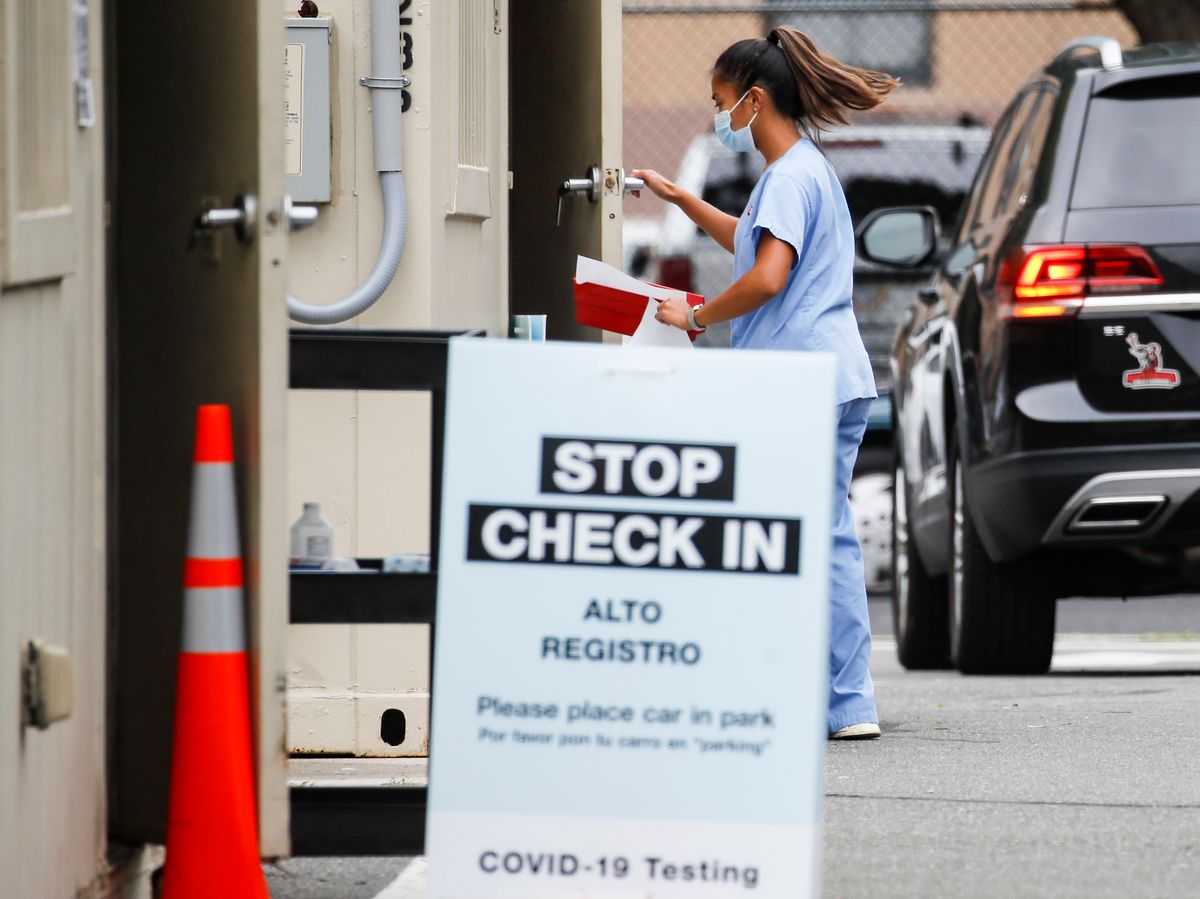Seven governors join deal for multistate coordinated COVID-19 testing

A few minutes every morning is all you need.
Stay up to date on the world's Headlines and Human Stories. It's fun, it's factual, it's fluff-free.
Maryland Republican Governor Larry Hogan announced in a statement on Tuesday that a bipartisan group of seven governors has formed a purchasing compact with the Rockefeller Foundation that will allow them to purchase a total of 3.5 million COVID-19 rapid antigen tests.
The purchasing compact marks the first coordinated testing strategy in the absence of a national testing plan for all states. Maryland and six other states – Virginia, North Carolina, Michigan, Louisiana, Ohio and Massachusetts – will each purchase 500,000 kits.
The governors hope that the coordinated purchase of these kits will pressure the manufacturing companies to significantly increase production, which means more tests can be conducted in these states.
Hogan, who is also the chair of the National Governors Association, negotiated the deal. According to the statement, the Rockefeller Foundation “stands ready to assist in facilitating financing mechanisms to support" the deal.
The Foundation is a philanthropic organization that has listed detailed proposals on how the US can launch a national testing strategy to combat the COVID-19 pandemic.
Hogan said in the statement that the compact to procure the rapid antigen testing kits was necessary because of the long delays in the current testing infrastructure and the federal government’s attempt to cut funding for testing.
“With severe shortages and delays in testing and the federal administration attempting to cut funding for testing, the states are banding together to acquire millions of faster tests to help save lives and slow the spread of COVID-19.
“We will be working to bring additional states, cities and local governments on board as this initiative moves forward,” Hogan added.
Virginia’s Democratic Governor Ralph Northam said the seven states are, “leading America’s national response to COVID-19.
“We are bringing together this bipartisan, multistate coalition to combine our purchasing power and get rapid testing supplies to our communities as quickly as possible. The people in our … states want to see action, and we’re delivering.”
Action due to lack of national plan
The Trump administration has not implemented a national plan for testing in all states. Rather, the administration has left the responsibility of building testing infrastructure to states.
This has led to an uncoordinated development of the testing framework nationwide, with some states having a more robust testing infrastructure than others.
Although the US has dramatically increased its testing, people getting tested in national labs have had to wait for 10 days or more to get their results. In places such as Montana and Washington, DC, test results on average can take up to four or five days. In Arizona, there are reports of there being up to a three-week wait for test results.
This all means that even if the nation is increasing its number of tests, the results may be practically useless for curbing the spread of the virus because long waiting times make contact tracing difficult.
This is primarily why the seven states are pursuing rapid antigen tests, which can be conducted at a doctor’s office and return results in less the 30 minutes. The tests can also help with mass screening of the population.
FDA (Food and Drug Administration) approved rapid antigen tests are being sold by US manufacturers Becton Dickinson and Quidel Corp but are still not widely available in the country.
The antigen tests identify a protein on the surface of the virus and are thus less complex when compared to other COVID-19 tests that identify the virus’ genetic material. The latter require certain chemicals, which may be in short supply, to provide results in several hours. However, they are potentially more reliable than rapid antigen tests.
Have a tip or story? Get in touch with our reporters at tips@themilsource.com




Comments ()